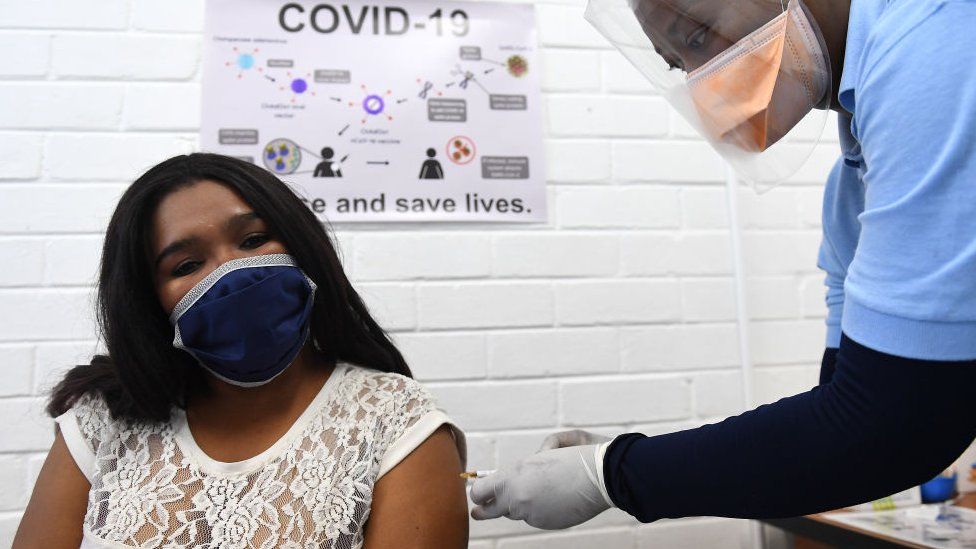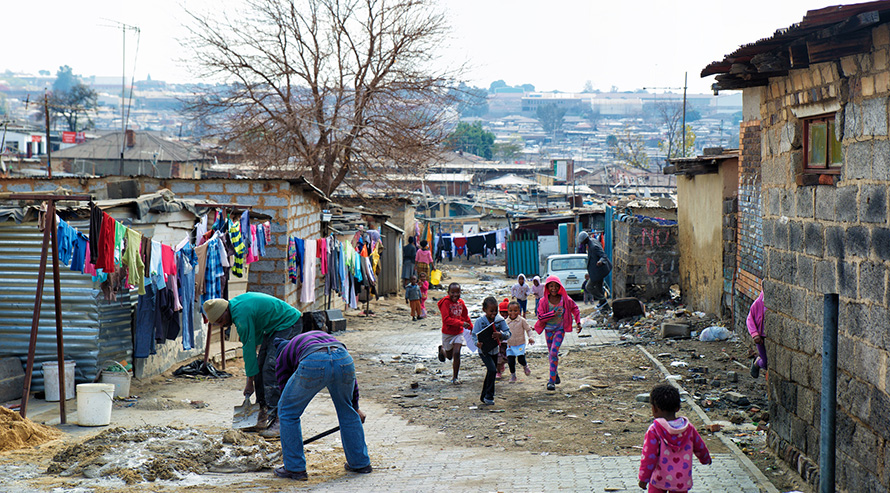Last week, Statistics South Africa (SSA) gave out a breath of fresh air by announcing that the economy sprang back in the fourth quarter of 2020 driven by expansion in manufacturing, construction and trade. But that announcement did not end there. It was a precursor to the statement that the economy recorded its biggest annual contraction in seven decades in 2020.
According to Statistics South Africa, GDP expanded by 6.3% quarter on quarter on a seasonally adjusted and annualized basis in the fourth quarter following a revised 67.3% expansion in the third quarter.
But that didn’t stop the economy from recording one of its highest levels of contraction in the 2020 calendar year. The 7% contraction exceeded the previous 0.2% contraction rate recorded in 2019.
GDP contracted by 4.1% in the last quarter of 2020 on a year on year basis, compared to a revised 6.2% contraction in the prior quarter.
The recession can be blamed on the government’s imposition of one of the world’s strictest coronavirus lockdowns to curb the spread of the novel coronavirus.
Recovery
South Africa is pushing ahead with plans to shore up its precarious public finances as officials warn the economy is “dangerously overstretched” despite the recent boom in commodity prices.
Finance minister Tito Mboweni hailed “significant improvement” as he delivered the annual budget on Wednesday and said that state debts that will hit 80% of GDP this year will peak below 90% by 2025, lower than initially feared.
But Mboweni warned that President Cyril Ramaphosa’s government was not “swimming in cash” despite a major recent tax windfall. The Treasury now expects to collect almost $6.8billion more tax than expected this year after a surge in earnings for miners. This compares with a projected overall tax shortfall of more than $13.5 billion.
However, the finance minister made clear that spending cutbacks would be necessary. “Continuing on the path of fiscal consolidation during the economic fallout was a difficult decision. However, on this, we are resolute,” Mboweni said. “We remain adamant that fiscal prudence is the best way forward. We cannot allow our economy to have feet of clay.”

Battling COVID-19
South Africa is Africa’s worst hit nation by the coronavirus pandemic with more than 1.5 million infections and 51,000 deaths recorded so far.
To quicken the economic recovery, the government has since eased the lockdowns though the risk of a resurgence in infections and reimposition of tighter restrictions remain as the country lags behind wealthier countries in vaccinations.
In January, President Cyril Ramaphosa said the government has secured 20 million more doses of coronavirus vaccines as he extended a ban on alcohol sales and curbed cross-border travel to slow the spread of COVID-19.
However, the government is yet to step up its vaccination program, which was launched last month with the administering of Johnson & Johnson doses to health workers as part of a research study.
Economic subsidies
To revive the economy, economists have suggested the rollout of economic programs to cushion key sectors such as agriculture.
In October, South Africa’s government announced a $66 million relief program for subsistence farmers, as it aims to revive the struggling agriculture industry hurt by COVID-19 pandemic disruptions.
Agriculture, Land Reform & Rural Development Minister Thoko Didiza told reporters during the launch that the program will provide successful applicants with as much as $593.1 each to help them tend their small scale farmers.
The program is part of President Cyril Ramaphosa’s economic stimulus package for small-scale food producers.
Coronavirus disruptions have hit Africa’s most developed nation hard, and farmers lamented that they were left out of the government’s COVID recovery plan released earlier in the month.
But corruption still remains
The fight to emerge from this crisis is hampered by a chronic problem that reins large in South Africa, corruption.
In November, South Africa’s auditor general announced recovery of nearly $228 million of irregularly paid COVID-19 jobless claims in an ongoing investigation into corruption linked to relief funds.
Earlier last year, a special jobless grant administered by the government’s Unemployment Insurance Fund (UIF) called TERS payments was introduced to provide between 38% and 60% of the salary of employees laid off directly as a result of the pandemic.
Corruption allegations arose and the national audit office backed up the claims saying parts of the $33.4 billion pandemic relief package had been exposed to varying scales of fraud.
In September, the regulator said its tiered investigation had identified around $9.7 billion of expenditure meant for relief programs like unemployment and poverty grants were showing “indicators of a higher risk of fraud.”
Releasing the second phase of the audit report in a televised briefing, Auditor-General (AG) Tsakani Maluleke said weaknesses in the system, such as incorrect calculation of benefit amounts, fraud and double-dipping, were being addressed.
“It is encouraging to note that, as at October 2020, the fund (UIF) has recovered about $228 million of funds that may have been disbursed incorrectly,” Maluleke said.
“Progress has been made in addressing the previously identified system weaknesses. However, since most of these enhancements were made during September, we still identified payments that will need to be investigated, although there are far fewer.”
The unemployment fund paid out $3.3 billion of jobless claims between March and October, Nxesi said in October.

